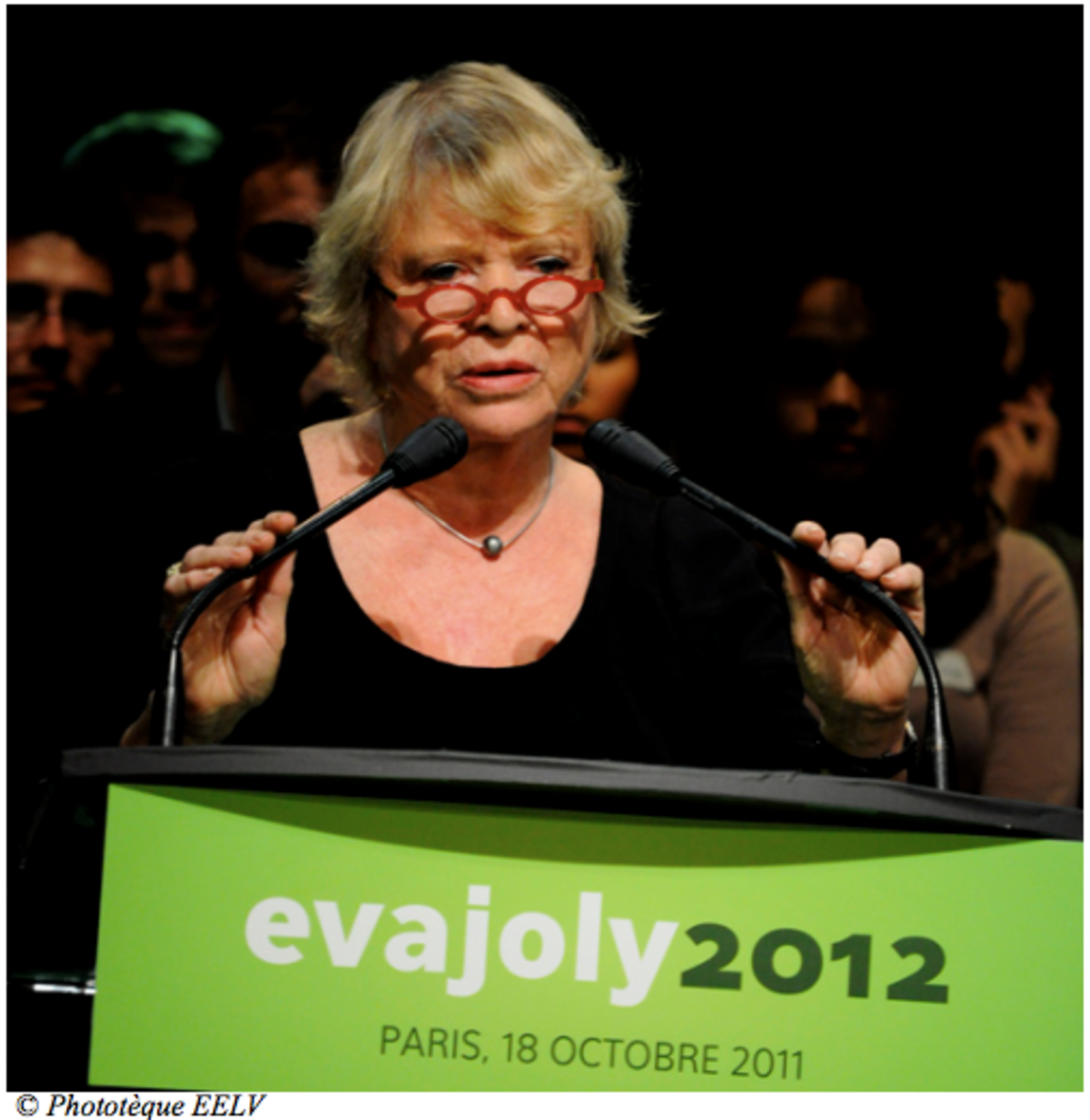Campaign managers for Eva Joly, the mainstream Green candidate running for the Europe Ecologie-Les Verts (EELV) party in next year's French presidential elections, have hit on a novel idea to avoid potentially disastrous financial losses if she fails to score 5% of the vote.
They are concerned by the poll-predicted possibility that Joly, 67, could come in under the crucial 5% watershed, depriving her of full state reimbursement of her campaign costs and exposing the EELV party to a debt of more than one million euros raised through bank loans.

Joly's campaign treasurer, Paris Green councilor Yves Contassot, told Mediapart he has mandated "a professional" to seek an insurance policy to cover an eventual shortfall, and notably with British or US insurance companies who are more inclined than their French counterparts to gamble on unusual risks."We'll keep looking right up to the end of the campaign," Contassot said.
The French presidential elections next year will involve, as usual, two rounds of voting. All the candidates are included in the first-round vote, held on April 22nd. Only the two with the highest scores will emerge from that round to go on to the final, decisive round of voting on May 6th.
Every candidate is entitled to state assistance towards the cost of their campaigns, but this varies according to the results they achieve. A candidate who attracts less than 5% of the vote in the first round is entitled to up to 800,000 euros, while candidates who score 5% or more are entitled to up to 8 million euros. The happy two who make it to the second round are entitled to up to 11 million euros.
Eva Joly plans to invest 2 million euros in her campaign, of which 1.8 million has been raised through bank loans. Most recent opinion polls forecast she will draw between 3% and 6% of the first-round vote, and if she fails to score 5%, her losses would amount to 1.2 million euros - representing a financial catastrophe for the cash-strapped Greens.

The cost of an insurance policy would be calculated according to the latest opinion poll results. "We could imagine a rate of 15% or 20%," Contassot explained, "meaning a premium for the insurance broker of between 150,000 euros and 200,000 euros." Naturally, the less well she performs in the polls, the higher the risk and the higher the cost of the policy.
Contassot said that his move was inspired after discovering that maverick left-wing politician Jean-Pierre Chevènement succeeded in secretly insuring his 2002 presidential election campaign costs, which included loan debts of 8.5 million euros, through a US broker; in the event, Chevènement scraped home with a first-round score of 5.33%.
"We had contracts with a pool of seven or eight insurers who covered a part, not the totality, of the candidate's debts," Chevènement's 2002 campaign finance agent, Jean-Pierre Cossin, told Mediapart. "They were a bit ruffled, because Chevènement only just past the 5% mark, but they made a profit." Chevènement's pool of insurers, which Cossin found only after lengthy research, was led by the US broker and risk advisor Marsh.
"In France, I was told ‘Oh no, we've never done politics'", recalled Cossin, who added that he succeeded in insuring Chevènement just when opinion polls predicted he would take between 9% and 10% of the first-round vote. The operation was kept strictly confidential. "To publicise it is to recognise that we envisaged the hypothesis of a result of less than 5%, and that's not good for the moral of the troops," he added.
Ten years on, the Greens' are hoping to go one step further than Chevènement, by having the cost of their insurance - estimated at between 150,000 euros and 200,000 euros - recognised as part of Joly's campaign expenditure, and therefore eligible for refunding by the state.
Regulation of the campaign finances, and the terms of state financial assistance, comes under the authority of a national commission of control of campaign finances, the commission nationale chargée de contrôler les comptes de campagne, (CNCCFP). "I have already discussed this with the commission," said Contassot. "They took several days to consider the matter, but they said yes, it would be refundable."
Chevènement's former agent Cossin expressed surprise at such an agreement. "In 2002 we didn't include it [insurance] in our costs," he explained. "Because beforehand, I seem to recall, we had been told that it would not be refundable."
Contacted by Mediapart, the CNCPP said the refunding the cost of an insurance policy was limited to candidates who could not otherwise raise bank loans for their campaign. "Such insurance policies can only be refunded if the candidate needed to take one out in order to borrow money from the banks," said a CNCPP spokesperson, adding that proof was needed that a bank had imposed this condition. "If the candidate had simply taken out insurance for safety, or peace of mind, it will not be reimbursed."
-------------------------
Englsih version: Graham Tearse


